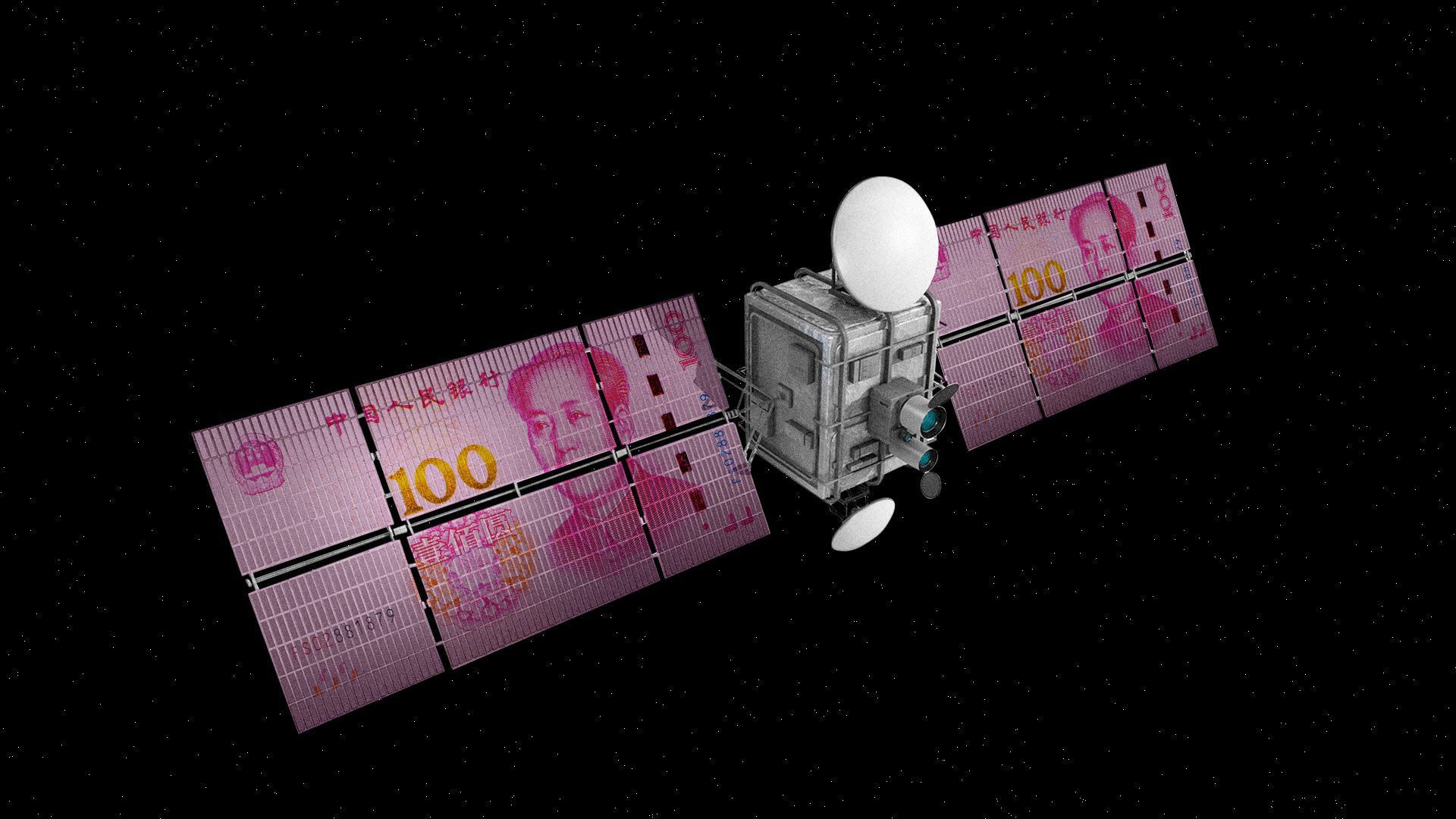China's commercial space industry charges ahead
Add Axios as your preferred source to
see more of our stories on Google.

Illustration: Aïda Amer/Axios
China’s commercial space ambitions stretch far beyond the industry’s current domestic focus, with plans to use private space capabilities to help bring Chinese influence to the world.
Why it matters: Space is a cornerstone of the global race for tech supremacy, and China wants to dominate from both a governmental and commercial standpoint.
- China's future in space could be, in part, defined by private companies that help to wield the country's soft power and influence on Earth.
The big picture: SpaceX and other providers have made launches affordable for some nations and companies, but space remains out of reach for others.
- Chinese launch companies and manufacturers see that gap in access as an opportunity.
- "Space, as the Chinese like to phrase it, contributes to all aspects of comprehensive national power ... so absolutely commercial space if it's done by the Chinese has several advantages," Dean Cheng, a space analyst focusing on China at the Heritage Foundation, told Axios.
Where it stands: At the moment, the Chinese space industry is mostly focused on working to get a foothold regionally and provincially before potential global expansion, experts say.
- "There is a sense that there's more entrepreneurship and innovation that could come from the private sector," Bhavya Lal, of the Institute for Defense Analyses, told Axios.
- "Many in policy circles believe that the Chinese need to develop this commercial space sector because there isn't as much innovation in state-owned enterprises."
- In December, the space industry in China established the China Commercial Space Alliance to help advocate for new policy, research and regulation, and to help foster international collaboration among nations involved in the Belt and Road Initiative.
Between the lines: According to a 2019 report, there are about 80 commercial space companies in China.
- The industry may be due for a shakeout in the coming years, with about 20 launch providers like LandSpace, LinkSpace and others competing in similar markets, according to the report.
- Lal, one of the authors of that report, expects that culling could occur within the next 5–10 years.
- "I think that maybe we are at a stage that the Chinese government is just letting these companies fight it out," Lal said, adding that once the consolidation occurs, the Chinese government may then try to find new ways to exert influence and support those that rise to the top.
- Rocket launches were delayed from earlier this year due to orders limiting the spread of COVID-19, potentially straining the growing industry.
Background: Chinese companies have been able to move faster after learning from U.S. successes in commercial space.
- SpaceX's first successful orbital launch occurred about six years after its founding; the Chinese launch company iSpace performed its first successful orbital launch three years after it started.
The bottom line: China is already using its state-owned enterprises to peddle influence around the world when it comes to space, but in the future, private space companies could add a new dimension to that power.
